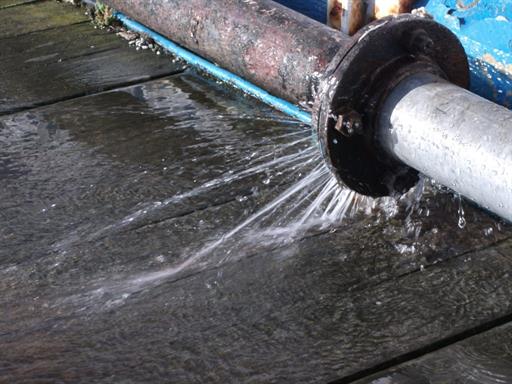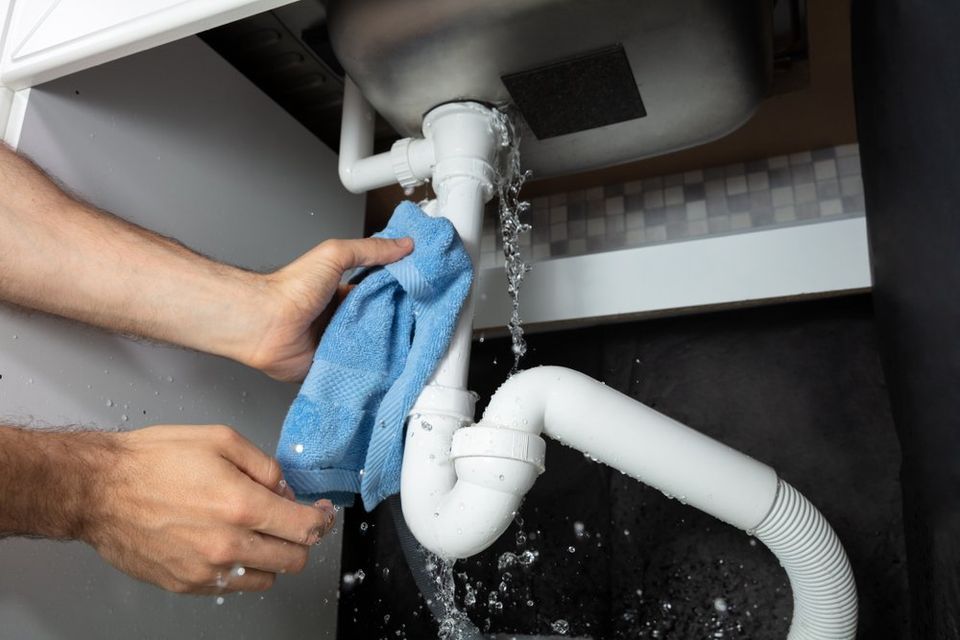Restoration Tips For Flood Damage From a Leaky Pipeline - Recover Quickly
Restoration Tips For Flood Damage From a Leaky Pipeline - Recover Quickly
Blog Article
They are making a few good pointers related to Do s And Don ts In Case Of Water Damage in general in this post further down.

What should you do if a water pipe bursts in your house, producing a mini-waterfall as well as swamping a location of your house? In this situation, you need to act fast. The longer you wait, the extra extreme the water damages in your residential or commercial property. When an emergency like this happens, presence of mind is essential. For these factors, you need to learn what to in case of a ruptured water pipe. Due to the fact that time is of the essence, check out the adhering to pointers below to assist you act quick.
Shut Off the Key Waterline Valve
Look for the regional shut-off valve to turn-off water in one specific area just. This will certainly cut off the water in your entire residence. Typically, the main shutoff is found outside the residence following to the water meter.
Call Water Damage Restoration Pros for Aid
After shutting the water resource, call the pros for help. With their professional assistance, you can alleviate exacerbation since water can seep through your things resulting in warped walls, loose tiles, or damage structure.
Document the Damage For Insurance
As you are waiting for the pros to show up, record the damages created by the errant pipeline. Staying proactive with this allows you to submit an insurance claim for protection, which will certainly assist you and your family members get back on your feet.
Salvage Points That Can Be Conserved
As soon as you're done taking images, browse the products and secure the most essential ones from the stack. Dry them off as well as attempt to maintain as high as you can. Drag them far from moisture so they can begin to dry.
Start the Drying Refine
Ultimately, while waiting on the pros, you can start the drying procedure. Fortunately, water from your waterlines are tidy so you don't need to bother with drain water. However, the streaming water may have interrupted the dust as well as debris in your carpets and floorboards. So be prepared with handwear covers as you use containers to dump out the water. Then, blot out as much as you can with old towels. You can additionally switch on an electric follower or open home windows to promote air blood circulation. This will certainly quicken drying out and deter mold and mildew and mold growth.
Experts are the only ones qualified to deal with the burs pipes and subsequent damages. You will usually see red flags like bubbling paint, unusual sounds in the plumbing, musty odor, caving ceiling, peeling wallpaper, or water stains.
What should you do if a water pipe bursts in your house, developing a mini-waterfall as well as swamping an area of your home? For these reasons, you need to learn what to in situation of a ruptured water pipe. After closing the water resource, call the pros for aid. With their expert help, you can reduce exacerbation because water can leak with your things resulting in distorted walls, loose ceramic tiles, or damage framework. Luckily, water from your waterlines are clean so you do not have to stress about sewer water.
BROKEN WATER PIPES: COST TO REPLACE & WAYS TO FIX A PIPE
CAUSES OF A BROKEN WATER PIPE
A water pipe can break for several reasons depending on the environment you live in, type of pipe, and circumstances.
The most common cause of broken pipes is freezing. If you live in a colder climate, this could happen. When water freezes it increases in volume by 9% and the pressure in the pipes can go from 40 psi to 40,000 psi. Clearly, this could be detrimental to the pipes. Water freezing causes quick expansion, which puts stress on the pipes and could lead them to crack or weaken. When water thaws, it will leak out the cracks. Other changes in water pressure can also cause breakage. Another common cause of broken water pipes is age.
Depending on the material, water pipes can last anywhere from 70-100 years. But the older they get, the more susceptible they are to weakening and corroding. Older pipes coming into contact with another material could speed up the corrosion process as well. PVC pipes can become brittle with age, while copper is prone to corrosion and stress over time. Something that could also potentially break water pipes is when they move. They may move from construction or the house settling. Moving can stress the fixed pipe which may lead to a leak or burst pipe.
HOW MUCH WATER COULD LEAK INTO YOUR HOUSE FROM A BROKEN PIPE?
The amount of water that leaks depend on how big the break in a pipe is. If it is just a minor crack, water will slowly leak out. This isn t as serious as a full broken pipe, but it can still cause significant damage to your home. Burst pipes can leak up to 10 gallons of water per minute. The amount of water leaked also depends on what appliance is involved. The water line to your refrigerator can leak to 1 gallon per minute depending on water pressure. One toilet supply line may leak 2-3 gallons a minute and a washing machine hose will leak up to 10-12 gallons per minute.
TURN THE WATER OFF
Doing this first is imperative; everything else can wait. You need to deactivate the water supply to stop the flow of water and prevent more water from leaking into your home. Shutting off the water could potentially save you thousands in water damage repairs. Locating the water shutoff valve depends on the climate you live in. For colder climates, the valves are usually inside, such as in the basement. For houses in milder weather, the shutoff valves will probably be outside either attached to an exterior wall or in an underground box with a removable lid.
OPEN A FAUCET
The next thing to do is to open a faucet or turn on a sink. This will relieve any remaining water pressure in the pipes and ensure a full-shut down.
GET RID OF THE WATER
The quicker you get rid of the water, the less water damage and mold there could be. Use a mop and a shop vacuum to help get clean up the water. Use towels to dry everything the best you can.
CUT AND REMOVE THE DAMAGED PIPE
Once you have shut off the water and drained the damaged water pipe, you can begin to fix the issue. Cut out the damaged section of the pipe with a pipe cutter, ensuring that you also cut one inch extra on each side of the damage. Once you get rid of the broken part of the pipe, you may begin repairs.
https://www.wmhendersoninc.com/blog/broken-water-pipes-cost-to-replace-ways-to-fix-a-pipe/

As a serious reader on What You Should And Shouldn t Do When Dealing With Water Damage, I imagined sharing that short article was valuable. Sharing is good. Helping people is fun. We value reading our article about Do s And Don ts For Homeowners Managing With Water Damage.
Call for peace of mind! Report this page